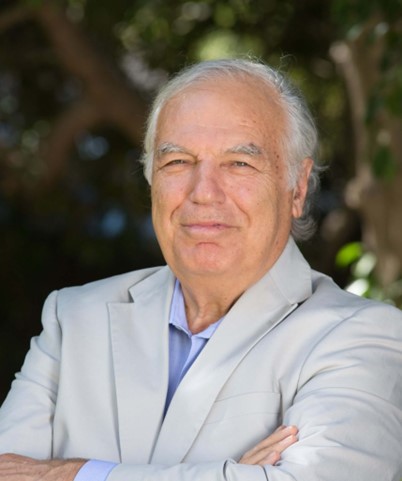I am a Nobel Prize Contributor, having authored part of the study for which the UN Intergovernmental Panel on Climate Change received the Nobel Peace Prize in 2007. From 1986 to 2009 I was a faculty member at Harvard University where, in addition to teaching and research, I served as the Director of the Environment and Sustainable Development Program at the Centre for International Development. I have also served as a Visiting Professor at Tel Aviv University (2010-15).
I was a member of two Cyprus Presidents’ Council of Economic Advisors (2003-07) and Council of the National Economy (2013-2017). From 1978-1986, I was a Senior Economist with the Rockefeller Foundation, New York, with postings in Southeast Asia, as advisor to Governments and Professor of Economics at Kasetsart and Thammasat Universities (1982-85), Bangkok, Thailand.
I hold a BSc in Economics from the University of Athens, a Master in Economics from York University, and a PhD in Economics from the University of British Columbia in Canada, with specialization in Environmental & Resource Economics, Capital Theory & Growth and Sustainable Development.
I have served as advisor to many governments at the highest level including Brazil, China, Cyprus, Indonesia, Russia, Thailand, the USA, Costa Rica, and several other countries in Central America, Eastern Europe, and the Middle East. I also served as consultant with the World Bank, UNDP, UNIDO, UNEP, FAO, and USAID and as an Environmental Economist on the China Council for International Co-operation on Environment and Development.
In 1991, I was awarded the “Distinguished Achievement Award” of the Society for Conservation Biology “in recognition of efforts to utilize economic analysis as a tool in environmental conservation”, concurrently and conjointly with E.O. Wilson, distinguished Professor of Organismic and Evolutionary Biology at Harvard University for his work on Sociobiology.
In 2010, I served as advisor to the High Level Advisory Group on Climate Change Financing (AGF) of the UN Secretary General, chaired by the Prime Ministers of Norway Jens Stoltenberg and of Ethiopia Meles Zenawi to develop a mechanism to raise $100 billion a year for the Green Climate Fund to finance climate change related green investments (for mitigation and adaptation) in developing countries. I co-authored the Group’s Report on Climate Change Financing, endorsed by the UNFCCC COP 16 in Cancun in December 2010. At the same time, I served as advisor to the COP16 host, the Government of Mexico (President and Minister of Finance), on Climate Change Economics and Energy Policy for UNFCCC COP 16 to a) develop a Financial Architecture for a Global Climate Treaty and b) mechanisms to leverage and incentivize the financial sector of Mexico to scale up financing of green investments to stimulate the growth of the green economy
Over the years, I served on many Boards and Honorary positions in international organizations and societies, including:
Advisory Committee, Pew Scholars Program in Conservation and Environment, Pew Charitable Trust, Philadelphia, PA.
National Committee for the Establishment of the National Institutes for the Environment (NIE), by the US Congress, Washington, DC.
Board of Directors, Center for Tropical Forest Science (CTFS), The Smithsonian Institution, Washington, DC.
Biodiversity Research Panel, National Academy of Sciences, Washington, DC.
Task Force for Tropical Diseases and the Environment, World Health Organization (WHO), Geneva, Switzerland.
Advisory Board, Center for Tropical Conservation, Duke University, Durham, NC.
Board of Directors, Enalion Environmental Management Centre, Nicosia, Cyprus.
Board of Directors, Thailand Environment Institute, Bangkok, Thailand.
TEACHING
I taught Environmental & Resource Economics, Social Welfare Economics & Cost Benefit Analysis and Public Policy & Sustainable Development for 23 years at Harvard University (1986-2009). At CIIM, I taught Economics, Cost-Benefit Analysis, and most crucially Ethics, Social Responsibility, and Sustainability for over 20 years. Over 2,500 students who graduated from CIIM from 2001-2022 has attended my course in Ethics, Social Responsibility and Sustainability, a course I also taught for five years to the students of the Kellogg-Recanati International Executive MBA Program of Tel Aviv University. My philosophy of teaching and learning is that “the instructor must not be the sage on the stage but the guide on the side”, maximising student engagement and interaction. In this regard, I researched, authored and tested an Instructor’s Manual “Learner-Centred, Problem-Based Teaching & Learning Model” with significant improvement in learning outcomes compared with conventional teaching and learning methods.
